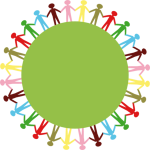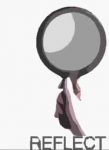
Another worthy of mention is Bennett’s Developmental Model of Intercultural Sensitivity or DMIS.
The DMIS is a framework for considering the evolution of understanding cultural differences. It is a scale comprised of these six steps:
1. Denial – your culture is the only culture
2. Defense – your culture is the best; others are inferior and stereotyped
3. Minimization – you are aware of differences but dismiss them because ‘we are all the same’
4. Acceptance – you recognize differences and are actively trying to learn more about other cultures
5. Adaptation – you use empathy to understand the viewpoint and experiences of other cultures
6. Integration – you deeply understand more than one culture and each is part of your identity which is continuously developing
Over the years, I have become more interested in learning of and understanding other cultures and now realize it is an ongoing process and that I’ll always be a student. The DMIS gives me some perspective as to where I am along this journey.
A final thought: As the world grows smaller and our communities and workplaces grow more diverse, understanding cultural differences is more and more important to career and leadership success.
Does the DMIS resonate with you? Do you have a favorite developmental continuum? Would love to know what you’re thinking. Comment below or shoot me an e-mail at laura@laurawolfephd.com.
Thanks for reading.
Do you know you?

Unfortunately, most people are so busy cramming each day with work, family, leisure, and life-maintenance tasks that we rarely take the time to reflect on who we really are right now.
Many of us look back at ourselves in high school and college, or during our twenties or thirties and have a laugh or think of that gospel lyric ‘thank God I’m not like I used to be’.
Wouldn’t it be wonderful to know your current self so that in twenty years you don’t reflect on this time and cringe? The good news is, that with awareness, you can make changes to start living and working more as the person you hope to be. However, Daniel Goleman does warn us to not become obsessed with knowing ourselves.
But, how do you get to know you? Fortunately, feedback is all around.
A shift in perspective about daily encounters is one way to gather feedback. Think about your interactions and relationships with friends, family, co-workers, employees, customers, grocery store cashiers, your postman, etc. Monitor how they react to you as therein are clues. Defensive behavior, excuses, and more may also provide insight.
Another way to get information is to ask people what they think. Others may not be comfortable giving feedback about your perceived weaknesses but usually will share with you perceived strengths. Being clear on strengths is just as valuable as clarity around our weaknesses. A way to put a little structure into this is to do your own version of the Reflected Best Self exercise.
Traditional feedback includes the formal performance discussion at work and also data from personality inventories or 360 degree feedback instruments. Reliable and valid assessments provide another snapshot of you. If your employer does assessments, ask to participate. If not, consider finding a coach that provides these services.
Self-awareness is an ongoing process worthy of consideration every so often.
What techniques do you use to know yourself? Share your thoughts in the comments below.
- « Previous Page
- 1
- …
- 37
- 38
- 39
- 40
- 41
- …
- 97
- Next Page »